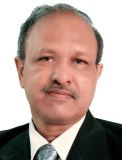Modi's warning to MPs is not real
For a man who makes dozens of televised speeches, takes to the radio once a month, tweets at will and is never at a loss for words, Narendra Modi's silence in the face of the communal statements his party colleagues have been making recently is something of a mystery.
Even on those occasions when Modi says something critical - as we are told by BJP spokespersons, he has done twice - he discusses the subject in a roundabout way, behind closed doors.
The public at large has no way of knowing where he stands on issues like "love jihad", religious conversions, the destruction of the Babri Masjid, and the place of religious minorities in an India that his parivar folks insist is a "Hindu nation".
Take the latest reports of Modi advising his party's MPs not to cross the "Lakshman Rekha" of propriety with individual statements that give the opposition a handle to attack the government with. According to BJP leaders, the Prime Minister said this at a meeting of BJP MPs in Parliament this morning, presumably in response to the controversy about Sakshi Maharaj's now-retracted description of Nathuram Godse - the assassin of Mahatma Gandhi - as a "patriot", and Yogi Adityanath's aggressive language on "Hindu pride".
Last week, Modi supposedly ticked off Sadhvi Niranjan Jyoti for abusing all Indians who do not follow Rama. 'Don't speak as if you are addressing the whole nation,' was the cryptic message our normally loquacious Prime Minister supposedly delivered to BJP MPs, surely an odd way of rebuking someone for saying such a terrible thing.
Incidentally, Modi did not criticize his MPs for making statements that are dangerous and divisive; the problem, we are told, was merely that the opposition was using these to its advantage and dragging the government into controversy.
On August 15, Modi said there should be a "10 year moratorium" on communal politics. Soon after, the Sangh Parivar in UP started whipping up anti-Muslim hysteria, particularly in those constituencies where by-elections were due. Modi's aide, Amit Shah, handpicked Yogi Adityanath to front the BJP's communal campaign. The RSS devoted a whole issue of its organ, Panchajanya, to the myth of 'love jihad'. This is the same RSS that every BJP leader from Modi down swears allegiance to. None of this drew a Prime Ministerial rebuke, not even a circumlocutious one.
By now it should be obvious that the ambiguity in the Prime Minister's messaging is deliberate.
Modi will not publicly criticize the hotheads in the Sangh Parivar because they are the committed foot soldiers who translated the promise of 'Mission 272' into reality. Today, he needs them to consolidate the BJP's strength and come to power in crucial states like Uttar Pradesh. At the same time, Modi knows remaining silent is not a very good option because the 12 per cent swing that his talk of "development" generated in the last election will melt away if voters realize they have been duped. Across the country, millions of people reposed faith in Modi because they believed his promise of jobs, growth and prosperity. The last thing these supporters want to see is the country dragged down by the hate politics of the RSS. That is why the BJP lets it be known from time to time that Modi is unhappy with what some party leaders are saying. On the ground, of course, nothing much changes.
Communalism plays a useful role for politicians in power. It helps divert attention from their failure to deliver, provided, of course, those in power are able to carefully calibrate its deployment. If, by 2018, the good days he promised are not here, Modi is likely to be grateful for Adityanath's exertions. But today, the Prime Minister's interests are not served by parivar hotheads escalating communal tension so quickly.
The strategy of appeasing the likes of Adityanath and accommodating the 'cultural' agenda of the RSS in education and other fields makes sense in the long run if a large enough chunk of voters who want development and jobs can eventually be turned into political Hindus. In the short-run, however, there is always the risk of the pot boiling over. So why is Modi willing to risk compromising social harmony when his work to revive the economy has barely begun?
Could it be that he realizes the enormity of the task he has undertaken and lacks confidence in his ability to deliver on his election promises? Is it that he lacks the political clout needed to discipline the Sangh Parivar? Perhaps he is not as good an 'administrator' as his supporters had assumed. Or perhaps he doesn't recognize the danger signs that are building up in UP and elsewhere.
Frankly, I am not sure what the reasons for his silence and inaction are. But unless he breaks his silence and publicly condemns the hate-mongering that is going on all around us, India is in for tough days ahead. more










